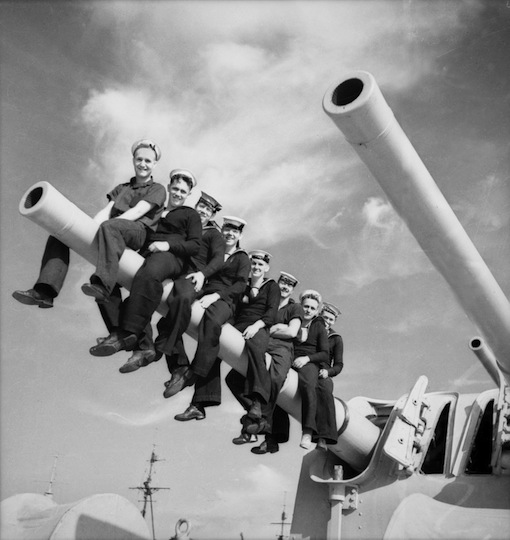Being Dutch, I have mixed feelings on the British Royal Navy as it has kicked ‘our’ behind in several wars centuries ago. But there’s no denying the glorious past of the Royal Navy and I love watching TV Series like the brilliant Horatio Hornblower (which are based on the slightly less accessible series of Hornblower books
by C.S. Forester).
What’s interesting is that the Royal Navy still can teach us a thing or two on leadership, as I discovered in this fascinating article in the McKinsey Quarterly. Research has shown two important leadership practices that are being used in the Royal Navy that are applicable elsewhere and I’m convinced they hold true for youth ministry as well.
Royal Navy Principle 1: Cheerfulness
The first principle we should apply to our youth ministries is the principle of cheerfulness. The Royal Navy has a deliberate policy of fostering good spirits amongst its personnel, for instance via informal games and contests. Research has shown that cheerfulness improves productivity, because happy people work harder. But how does this apply to youth ministry?
I think setting a positive, cheerful tone for your youth ministry can make all the difference. Nobody wants to be part of a team, an organization or a ministry where people complain all the time, where there is anger and complaining and reproach. Your leaders won’t be happy and neither will your students.

Being deliberate in creating a warm, positive atmosphere in your youth ministry will make people feel at home, happy. It will result in leaders functioning better and in students enjoying being in the youth ministry.
One important lesson to remember: the captain sets the mood of a vessel and in the same way the youth pastor sets the mood for the youth ministry. That means cheerfulness starts with you and then moves ‘downwards’. So ask yourself: how cheerful a person are you, do you radiate happiness, warmth and confidence?
Royal Navy Principle 2: Storytelling
A second principle of success in the Royal Navy I found very interesting was the tradition of storytelling, of remembering the past. Not only does fostering a collective memory help to learn from mistakes in the past, it also creates a common culture and unity.
This is something I’ve seen in my former youth ministry as well. For your leaders it’s important to learn from each other for instance, so make time for sharing both success and ‘fail’ stories in your youth ministry training. Make them as practical as possible, so the critical success or fail factors are clear.
Also, give your leaders knowledge of and a ‘feel’ for the history of the ministry. Especially when we come new into a job, we tend to ignore the past, but in doing so we disconnect people from a part of their identity. And it’s the same with new leaders who haven’t experienced certain important events in the past. Retelling these will help them settle in and become part of the bigger picture. Storytelling can reinforce a positive culture by remembering the past.
Storytelling and a collective memory is also important for students. As with new leaders, new students can feel like an outsider because they don’t know the running jokes, or the classic stories or the ‘do you remember when…” So retell these regularly to make them feel a part of the collective memory.
Making short videos of retreats or camps for instance and playing these in the Sunday morning service, also helped us create collective memories. We did the same with framing posters from memorable youth services and hanging these in the youth room, or creating a photo wall with dozens of pictures from students. Every times students saw these, it would bring back memories of good and fun times. Social media can also play a valuable role here.
How are you using cheerfulness and storytelling right now to create a positive culture in your youth ministry? What could you do to improve this?
Leave A Comment